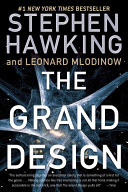Carbon VS Silicon Life
Though one might imagine "living" organisms such as intelligent computers produced from other elements, such as silicon, it is doubtful that life could have spontaneously evolved in the absence of carbon. The reasons for that are technical but have to do with the unique manner in which carbon bonds with other elements. Carbon dioxide, for example, is gaseous at room temperature, and biologically very useful. Since silicon is the element directly below carbon on the periodic table, it has similar chemical properties. However, silicon dioxide, quartz, is far more useful in a rock collection than in an organism's lungs. Still, perhaps lifeforms could evolve that feast on silicon and rhythmically twirl their tails in pools of liquid ammonia. Even that type of exotic life could not evolve from just the primordial elements, for those elements can form only two stable compounds, lithium hydride, which is a colorless crystalline solid, and hydrogen gas, neither of them a compound likely to reproduce or even to fall in love. Also, the fact remains that we are a carbon life-form, and that raises the issue of how carbon, whose nucleus contains six protons, and the other heavy elements in our bodies were created.
Notes:
While we can imagine living computers, it is hard to imagine silicon life spontaneously forming in the universe.
Folksonomies: life alien life xenobiology
Taxonomies:
/business and industrial/chemicals industry/plastics and polymers (0.262666)
/business and industrial/energy/natural gas (0.238096)
/science/chemistry (0.210520)
Keywords:
Carbon VS Silicon (0.934802 (neutral:0.000000)), silicon life (0.775151 (neutral:0.000000)), similar chemical properties (0.602488 (neutral:0.000000)), silicon dioxide (0.569599 (neutral:0.000000)), Carbon dioxide (0.385151 (neutral:0.000000)), colorless crystalline (0.373206 (neutral:0.000000)), carbon life-form (0.368000 (positive:0.233250)), lithium hydride (0.365725 (neutral:0.000000)), unique manner (0.353562 (positive:0.280523)), carbon bonds (0.349294 (positive:0.280523)), intelligent computers (0.340440 (neutral:0.000000)), periodic table (0.337154 (negative:-0.221425)), room temperature (0.336331 (negative:-0.366509)), liquid ammonia (0.335372 (neutral:0.000000)), primordial elements (0.333101 (neutral:0.000000)), nucleus contains (0.332483 (neutral:0.000000)), rock collection (0.323032 (neutral:0.000000)), stable compounds (0.316089 (neutral:0.000000)), hydrogen gas (0.309431 (negative:-0.342107)), heavy elements (0.304404 (neutral:0.000000)), exotic life (0.299042 (neutral:0.000000))
Entities:
Carbon dioxide:FieldTerminology (0.871313 (neutral:0.000000))
Concepts:
Chemical element (0.975885): dbpedia | freebase
Carbon (0.756801): dbpedia | freebase | opencyc
Chemistry (0.742181): dbpedia | freebase | opencyc
Oxygen (0.662236): dbpedia | freebase | opencyc
Hydrogen (0.649965): dbpedia | freebase | opencyc
Life (0.630330): dbpedia | freebase
Organism (0.616511): dbpedia | freebase
Periodic table (0.612381): dbpedia | freebase | opencyc





